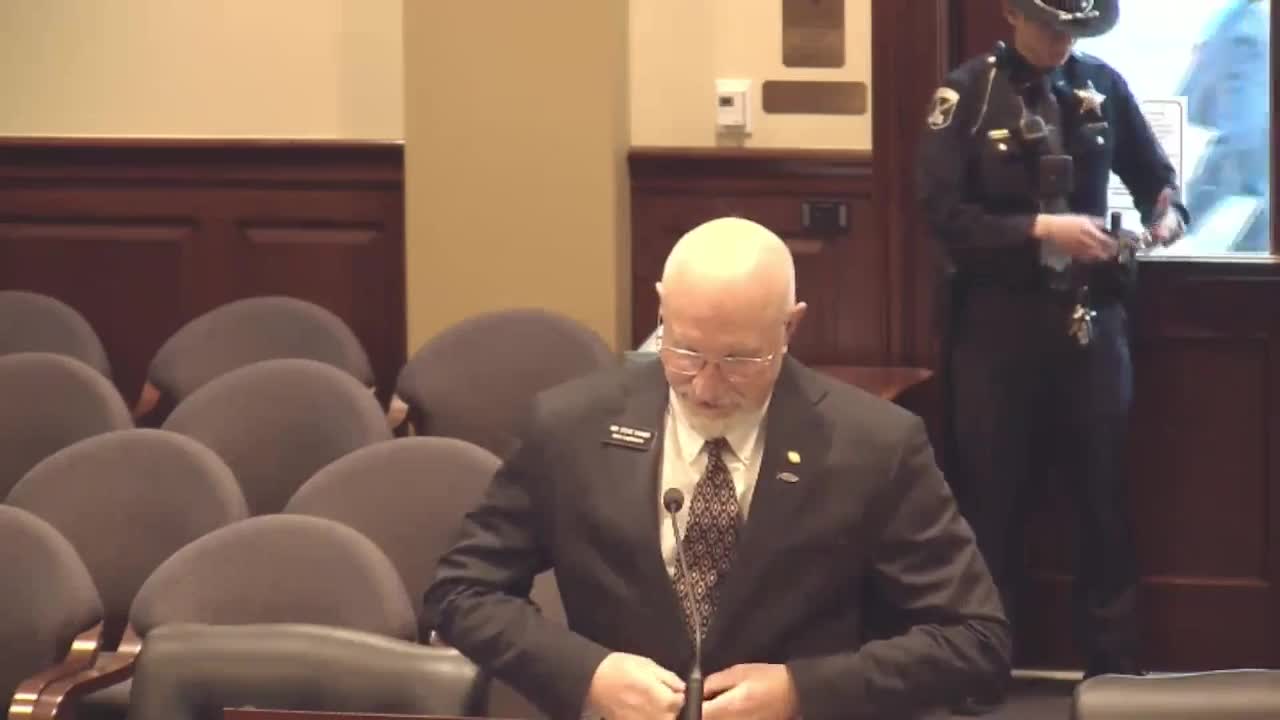Idaho committee debates bill to collect students' immigration status; motions tie twice
Get AI-powered insights, summaries, and transcripts
Subscribe
Summary
Lawmakers debated RS 32,405, a proposal to require schools that receive state money to record and report students' immigration status and nationality. Committee members raised constitutional, privacy and cost concerns; two motions on the measure each resulted in 7-7 ties and the bill did not advance.
Representative Steve Tanner asked the Idaho House Education Committee to introduce RS 32,405, a proposal that would add a new chapter to Title 33 requiring schools and districts that receive state funds to record students' immigration status and nationality and to aggregate and make that information public.
The proposal drew sustained questioning from committee members about feasibility, cost, privacy and constitutional authority. “I anticipate this is just internal workings from staff that is already in our schools,” Tanner said, adding enrollment paperwork would be the vehicle for collecting documentation. Tanner said the status categories would align with the Immigration and Nationality Act.
Committee members repeatedly pressed the sponsor on implementation and on the stated purpose. “How did you arrive at the conclusion that collecting the immigration status and nationality of probably just over 400,000 people won't cost any money?” Representative Mathias asked, citing the fiscal note and the bill’s reporting requirements. Tanner replied that existing intake processes would handle the collection and that parents typically provide birth certificates or other paperwork.
Other lawmakers raised objections based on privacy and constitutional risk. Representative Church asked what “made public” would mean in practice and whether reports would be posted on the internet or provided in print. Representative Clow warned of potential constitutional problems and likened broad public disclosure to stigmatization. Representative Thijs said the committee would need to see a compelling state interest before imposing such reporting requirements on schools.
Members also debated whether the data the sponsor wanted would already be captured indirectly through existing reporting, such as counts of English learners. “What costs the school districts a lot of money is English as a second language,” Representative Ehart said. Several members said districts already report English-learner counts to state education authorities.
Two competing motions were considered. Representative Garner moved to return RS 32,405 to the sponsor for further work; that motion resulted in a 7-7 tie and failed. The committee then voted on the original motion to introduce RS 32,405 with an amendment directing schools to report each year to the superintendent of public instruction and to make the aggregated information public; that vote also resulted in a 7-7 tie and failed. Because both motions failed, RS 32,405 was not printed or advanced by the committee at this meeting.
The debate included multiple requests that the sponsor clarify how nationality would be proven for students without immigration documents and how the state would balance transparency, privacy and the constitutional limits on singling out a population. Representative Mathias warned of litigation risk and estimated potential costs to taxpayers if the measure prompts legal challenges. Representative Tanner said the measure’s purpose is to quantify demographic changes the sponsor described as new burdens on public instruction, especially for students who are not English speakers.
The superintendent of public instruction was named in the amendment that members debated; Representative Garner and others said returning the RS to the sponsor could allow the measure to be revised and clarified and would not kill the idea for the session.
Next steps: Because both motions failed on tied roll calls, RS 32,405 did not move forward at this committee meeting. The sponsor and committee members indicated interest in returning an improved proposal for further consideration.
